Ned McNeil wanted to know about Marvie and she found the person who was a gold mine of information! Excerpt from Murder By Moonlight.
It was one thing to say I wasn’t interested, but it was another to actually mean it. All that trouble at the deserted farm had happened a long time ago. Mrs. Saunders had been dead for several years, and I had no business being so inquisitive. This is what my sensible self told me when it could get a word in edgeways. I couldn’t keep from wondering, though, what made Marvie Saunders tick. Was she truthful or devious? Excitable or calm? She had been a teacher and people in town, some of them, still remembered her.
The high school! Surely all schools kept records of past teachers and students. They should have something on file about Mrs. Saunders. Maybe even a picture.
Certainly, a visit to the school wasn’t the same as a visit to the Saunders farm. It would do no harm at all, and would partially satisfy my rampant curiosity. As soon as Pat left, I’d give that school secretary a call.
The nameplate on her desk informed me that she was Miss Simms, secretary of Ednalee high school. My family had moved to Atlanta before I reached high school age, but my guess was that Miss Simms may have been at this post for many years. Silver haired and thin as a rail, age seemed to be only a number for Miss Simms. Her lively eyes told me she had lost nothing in the mental department.
I introduced myself and held out my hand. She half rose from her chair, wrinkles wreathing her smile as she said, “Are you little Nettie, Javin’s niece? Oh, my goodness! How the years have flown. I’m so glad to see you again, Nettie.”
The cold day immediately felt warmer at this woman’s welcome. She evidently remembered Uncle Javin with fondness. I liked Miss Simms.
In a voice that held not one iota of a quaver, she asked, “What brings you this way, Nettie, after all this time?”
I cleared my throat. “Actually, I—um—I work for Daisy Stanton, taking pictures of houses for her listings and I’ve recently taken pictures of the Saunders house. Do you know of it?”
As she gazed at me, I felt that Miss Simms could see through any pretense I might give her to justify my interest.
“I most surely do,” she said.
“Did you, by any chance, know Marvie Saunders? I understand she was a teacher here. Do you have any records on her that I could read?”
She glanced around the office as if to make sure we were alone. In a hushed tone, she said, “It’s time for my tea break, Nettie. Let’s go into my inner sanctum.”
She rose from her chair, all skinny five feet of her, surely she wasn’t taller than that, and led the way through a sliding door into what was, from the looks of it, a store room. Shelves of boxes, books, copy paper, a dictionary or two, and an old set of World Book Encyclopedias lined the walls. On one table sat a copier and on another, an electric tea kettle with a small basket of varied flavored tea bags. She poured two cups, plopped in a couple of bags of tea, and motioned for me to sit in one of the ancient folding chairs.
Her eyes took on a far-away look. “I don’t want anyone to hear us because I really don’t believe in gossip and you know how walls have ears and people like to repeat things. Even though I was quite a few years younger than she, I was blessed to be one of Marvie’s friends. She taught here for a number of years. She was an excellent English teacher, loved poetry, especially Edgar Allan Poe. She even wrote some poetry herself and published a small volume.”
Miss Sims finished making the tea, spooned sugar in without asking whether I wanted any, and brought one steaming cup to me.
I would bet Miss Simms knew quite a lot about Marvie Saunders. She sounded like another of Ednalee’s armchair historians; at least, as far as Marvie was concerned.
“How wonderful,” I said, setting my tea on the napkin she handed me and holding it on my knee. This brew looked and smelled strong– black and hot.
“Why are you interested in Marvie?” Miss Simms asked. “She has been dead a long time, and I’d just as soon she rests in peace. She didn’t have much of that before she died—peace, I mean.”
Drawing a deep breath, I decided to be truthful—as far as I could be without sounding like a superstitious idiot.
“As I said, I took some pictures of the Saunders house for Daisy and, in the process, learned a bit about the tragedy surrounding it. I understand that Mrs. Saunders continued to live there after her husband’s death. She must have been a plucky, determined woman. I guess I’m curious about why she didn’t just leave the scene of the murder and felt that she had to stay.”
Miss Simms crossed her legs, primly adjusting her skirt over her knees. “Actually, it’s nice to be able to talk about Marvie. Not many people are left who remember her. She was plucky, yes, but she kept that hidden from most people. To those here at school, she was somewhat of a dreamer, but honest? Oh, my! That woman could be brutally honest. I think she was the sort who would have confessed the truth, even at the point of a gun. Over-active conscience, I think. She didn’t talk a lot, but a person could count on what she said. I’ve often thought that writing poetry was her outlet from such a constrained home life.”
I nodded and swallowed a gulp of scalding tea. Tears came to my eyes as it burned its way to my stomach. Patricia Simms smiled at me as I fanned my mouth.
“Marvie had few interests outside of teaching and writing poetry. She was what I’d call stand-offish, didn’t make many friends and was sort of skittish. I felt honored that she and I were friends.” She got up, poured a glass of water and handed it to me. “Sorry about that tea. I should have warned you.”
Gratefully, I sipped the water. “Thanks. Did you ever visit her? Did she confide in you about the night of the murder?”
“I went out to see her once, before Cletus died. He evidently didn’t want me there, so it wasn’t a comfortable visit. Poor Marvie–she was so embarrassed. Cletus didn’t seem to want her to have friends. He was an ugly man, even took charge of Marvie’s pay check and put the money back into the farm. I know this because of little things she’d say, now and then. She loved pretty things, especially jewelry, but I guess he was too much of a skinflint to let her buy much for herself. I never did see her wear a piece of jewelry to school, just her wedding ring.”
I smiled. “So, you didn’t like Marvie’s husband very much.”
Miss Simms snorted. “I couldn’t stand the man and I think Marvie was afraid of him. I went to see her again, after his death, to take food and flowers, but Marvie didn’t have much to say. She sort of withdrew, after that dreadful night and kept pretty much to the farm–she and Hershel, the boy who helped her run it.”
This fit the pattern I was hearing about Cletus Saunders. It sounded as if his death wasn’t a great loss to anyone.
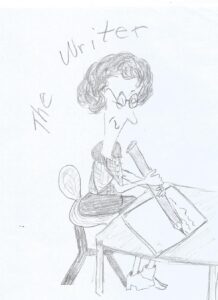
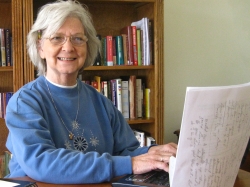
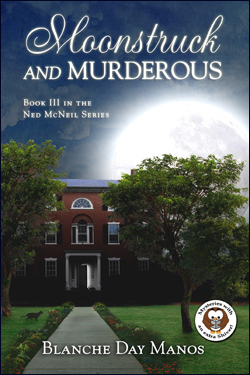
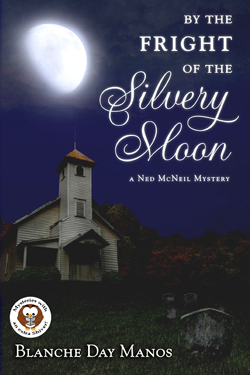
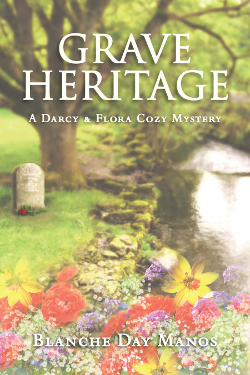
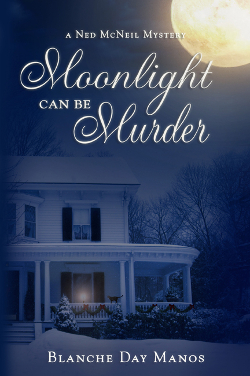
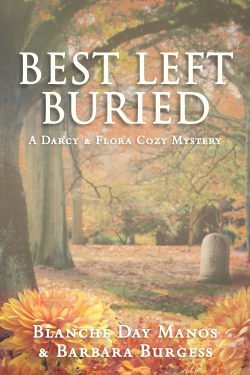
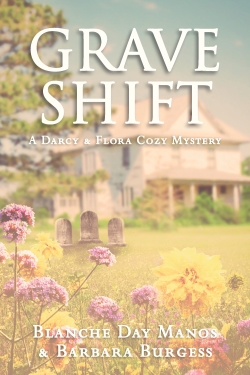
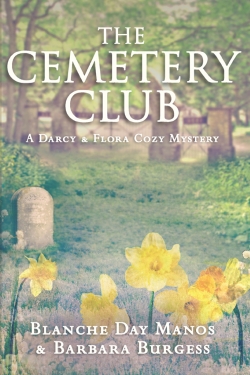
You never know what you can find out from neighbors!
That’s true. Listening to someone else is sometimes a mind-opening experience.